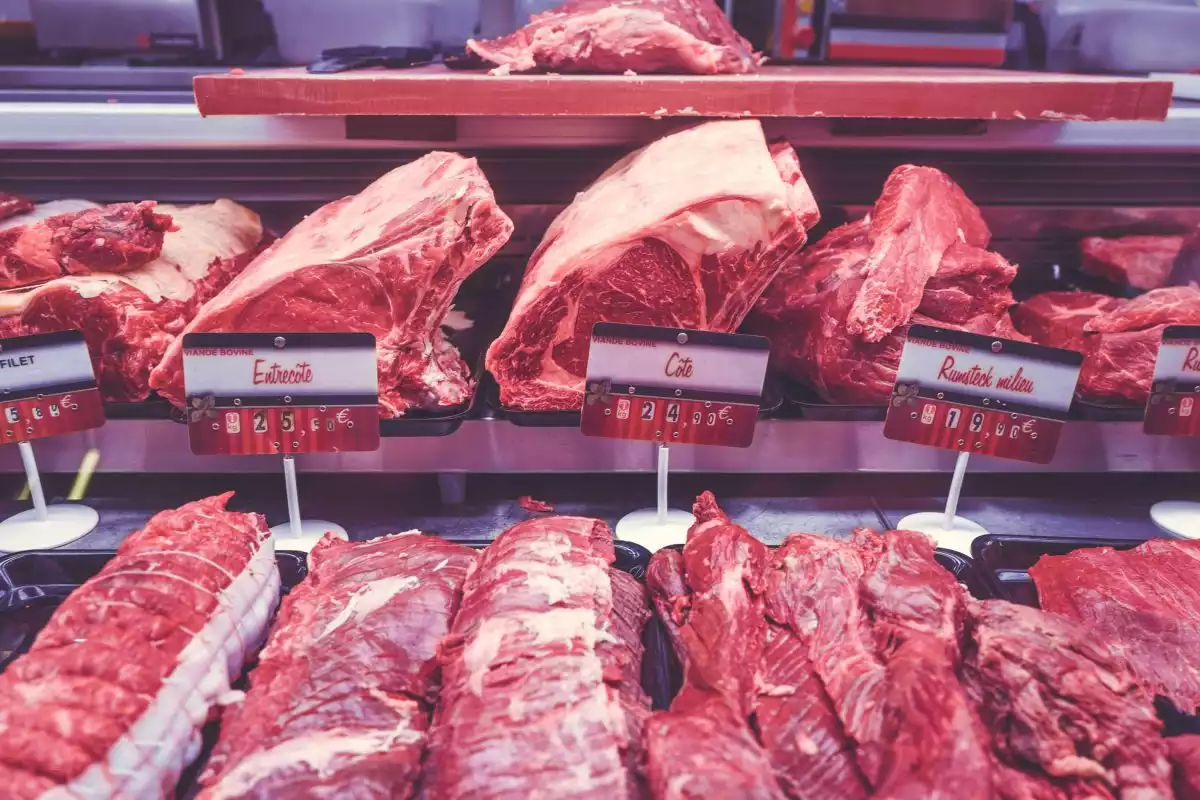Products that are supposed to miraculously lower cholesterol levels have started showing up in the media more and more over the course of the last few years.
Although there are foods out there that can help to lower cholesterol, there are some that should be cut entirely out of the diets of those with high LDL levels. In this article, we outline high cholesterol foods that people who are watching their cholesterol intake should avoid.
High cholesterol foods to avoid
A build-up of cholesterol (specifically in the bloodstream) can cause cardiovascular and coronary diseases that imply serious health issues.
Although there are foods out there that prevent these conditions, people with high LDL levels need to pay close attention to their diets. Below we describe which ones to stay away from and why.
Red meat
Red meat has the highest fat content of all meats, which is why people with high cholesterol should avoid this food.
Red meat is the worst possible food for those with high cholesterol because unlike low-fat white meats such as turkey or chicken, it contains high levels of this unhealthy nutrient.
Eating meals with red meat and fatty sauces increase overall fat consumption, thus raising the risk of skyrocketing LDL levels. Foods like beef, chorizo, and pork are usually off-limits for those with serious cholesterol problems.
Eggs
Eggs are also typically forbidden for those with high LDL levels, mostly because of their high protein and saturated fat content.
Eggs are widely consumed, even on a daily basis sometimes. This food is highly versatile and nutritionally dense, which makes it popular.
In spite of all this, those with high cholesterol should avoid consuming this food, and if they do, they should limit themselves to 2 or 3 eggs a week. Often eggs are included in dishes heavy in meat and fat, which is why you should stay away from them if possible.

Palm oil
Palm oil is widely used across the globe. For years now, it has been a primary ingredient in unhealthy processed foods.
This type of oil is in almost all of the processed foods at the supermarket. Also, since it is mostly made up of fat, this product is really just empty calories. That is why palm oil is something that people with high cholesterol should avoid.
Processed foods
Cutting processed foods out of the diet is definitely necessary for those with high LDL levels. It is a known fact that processed foods are unhealthy for us in general. Besides, they are nutrient poor and usually lead to weight gain.
On this list, we find processed meats like hamburgers, sausages, cured meats, and French fries. Also, you should stay away from sweet foods like industrial baked goods, cookies, and chocolates.
Don't forget, consuming fast foods is risky if you want to keep your cholesterol levels low since it is high in fat and low in nutrients.
If you want to gradually cut this junk food out of your diet, we suggest eating, fruits, vegetables, fish, and legumes, instead. All of these foods contain less fat and more nutrients.
Seafood
Fish is almost always thought to be quite healthy, nutritious, and lean. However, seafood, on the other hand, can put the health of those with high LDL levels at risk.
Most seafood is also highly nutritious since it contains many nutrients. However, prawns, jumbo shrimp, and lobster are all high in cholesterol.
Dairy products
Full-fat dairy products are out of the question for those watching their cholesterol. This includes whole milk, yogurt, and milkshakes that are high in fat.
Liver, haggis, and pate
These products contain the highest concentration of cholesterol of all foods of animal origin.
Liver, haggis, and pate are some of the worst foods for LDL levels. Foods that contain chicken or beef liver have the highest levels of all.
References
Lecerf, J. M. & De Lorgeril, M. (2011). Dietary cholesterol: from physiology to cardiovascular risk. British Journal of Nutrition, 106(1): 6–14.
